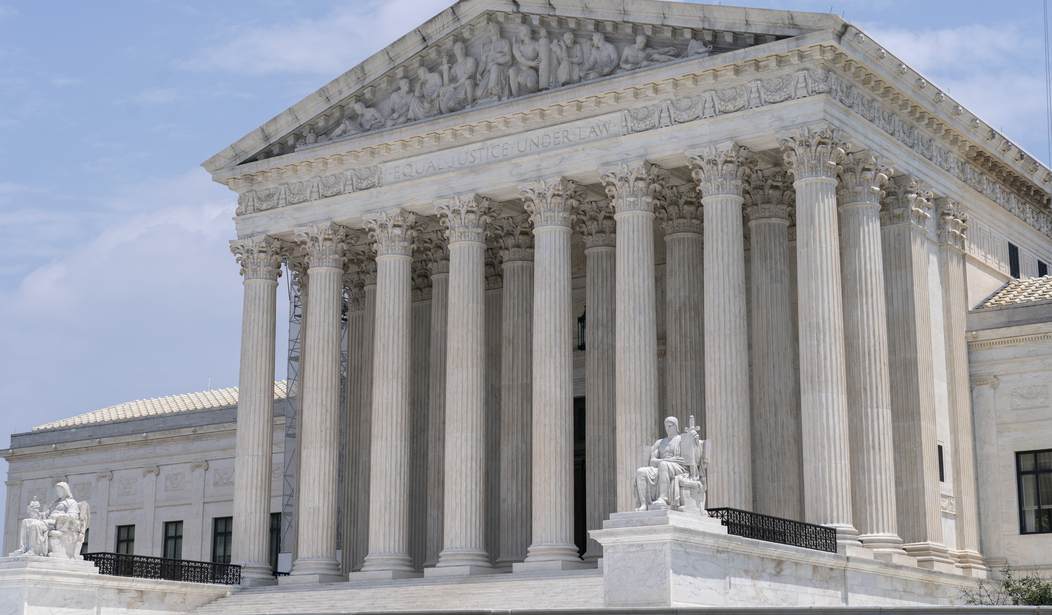The Supreme Court voted unanimously to allow Donald Trump to remain on the Colorado state ballot on Monday, reversing the lower court’s ruling,
"The judgment of the Colorado Supreme Court therefore cannot stand,” the justices wrote. "All nine Members of the Court agree with that result."
Last year, left-wing groups launched a nationwide effort to exclude Trump from primary ballots, citing Section 3 of the 14th Amendment. While most states have rejected these attempts, the Colorado Supreme Court declared Trump ineligible in December. Maine's Secretary of State eventually followed suit. Last week, a leftist judge in Illinois removed Trump from the state ballot as well.
"We conclude that States may disqualify persons holding or attempting to hold state office. But States have no power under the Constitution to enforce Section 3 with respect to federal offices, especially the Presidency,” the ruling states.
Conflicting state outcomes concerning the same candidate could result not just from differing views of the merits, but from variations in state law governing the proceedings that are necessary to make Section 3 disqualification determinations. Some States might allow a Section 3 challenge to succeed based on a preponderance of the evidence, while others might require a heightened showing. Certain evidence (like the congressional Report on which the lower courts relied here) might be admissible in some States but inadmissible hearsay in others. Disqualification might be possible only through criminal prosecution, as opposed to expedited civil proceedings, in particular States. Indeed, in some States—unlike Colorado (or Maine, where the secretary of state recently issued an order excluding former President Trump from the primary ballot)—procedures for excluding an ineligible candidate from the ballot may not exist at all. The result could well be that a single candidate would be declared ineligible in some States, but not others,based on the same conduct (and perhaps even the same factual record).
[...]
An evolving electoral map could dramatically change the behavior of voters, parties, and States across the country, in different ways and at different times. The disruption would be all the more acute—and could nullify the votes of millions and change the election result—if Section 3 enforcement were attempted after the Nation has voted. Nothing in the Constitution requires that we endure such chaos—arriving at any time or different times, up to and perhaps beyond the Inauguration
The Supreme Court heard oral arguments on Trump v. Anderson last month, and it was apparent to most people that they were likely to overturn the Colorado State Supreme Court and settle the issue of Trump’s eligibility, though some expected that Justice Sonia Sotomayor would dissent. While the ruling was unanimous, Justices Sotomayor, Elena Kagan, and Ketanji Brown Jackson did write a concurring opinion disagreeing with the scope of the majority’s opinion.
With this issue now settled, one can’t help but wonder what scheme leftists will attempt next to hold onto the White House.
Here at PJ Media, we’ll continue to expose these attacks on our democracy, and you can bet they will get worse as we get closer to the 2024 election. By becoming a VIP member, you’ll be directly supporting our hard-hitting journalism and commentary and giving us the tools we need to fight back against the censors.
Use the promo code SAVEAMERICA for a 50% discount on an annual membership. That takes the price down to $2/month for a standard VIP membership and $4/month for VIP Gold, which gives you access to all the content at all the Townhall Media sites: PJ Media, Townhall, RedState, Twitchy, Bearing Arms, and HotAir. Sign up here and become part of the solution today.










Join the conversation as a VIP Member